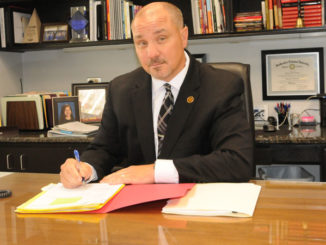
Louisiana has had some success in improving our system for punishing criminals.
We have moved from incarcerating the most prisoners per 100,000, to the second to last place. Our state was known as the “world’s prison capital.”
We thank Oklahoma for helping us move up a notch.
However, we still have a long way to go. Every year we have a budget crisis in our state. Think of the money we could save if we could come up with a system of rehabilitating the less dangerous criminals instead of the expensive system of locking them up.
Most religions and cultures believed that sin and evil are to be punished and that retribution is to be demanded of the sinner in this world and usually in the next. Such a arrangement called “retributive justice” is a dualistic system of reward and punishment, good guys and bad guys, and makes perfect sense to most people.
This system promotes prisons, courtrooms, wars, and even sanctions by religious and church authorities. “If you do evil things, you are going to hell.”
Jesus and other spiritual teachers took a different approach. Jesus was often accused of hanging around with sinners. The only people Jesus became angry with were those who thought they were better than anyone else and looked down on others. (These people still exist today).
Jesus looked upon sin and failure as an opportunity for the transformation and spiritual growth. Keeping score of our sins and failures is not the spirit of the Gospel.
Jesus wants to restore relationships, and not just blame or punish. This is this meaning of God’s Amazing Grace that we often sing. (We sometimes define God as a strict judge instead of a Healer, Forgiver, Reconciler and Lover and so we feel justified following that retribution model.)
What we really need is an honest exposure to the truth and accountability for what has happened. Only then can human beings move ahead with dignity. Hurt needs to be spoken and heard. It does not just go away on its own.
This can then lead to “restorative justice,” which is what the prophets invariably promise to the people of Israel.
In Isaiah 57:17-19, God says, “Because of their wicked covetousness I was angry; I struck them, I hid and was angry; but they kept turning back to their own ways. I have seen their ways, but I will heal them; I will lead them and repay them with comfort, creating for their mourners the fruit of the lips. Peace, peace, to the far and the near, says the Lord. I will heal them.”
Jesus’ story of the Prodigal Son (Luke 15:11-32) and his whole healing ministry should teach us how we are to act toward sinners. The aim of “restorative justice” is to return the person to a useful position in the community. There can be healing for the offender and those offended. Such justice is a mystery that only makes sense in our inner selves.
Any good therapist will tell you that you cannot heal what you do not acknowledge. What you do not consciously acknowledge will control you from within, festering and destroying you and those around you. In the Gospel of Thomas, Jesus teaches, “If you bring forth that which is within you, it will save you. If you do not bring it forth, it will destroy you” (Logion 70).
Only mutual apologies, healing, and forgiveness offer a sustainable future for humanity. Otherwise, the past will control us. We all need to apologize, and we all need to forgive or we will surely self-destruct. Observe what is going on in our country and in other countries. When we take sides and hold on to bitterness and grudges, violence will inevitably follow.
“Forgiveness is to let go of our hope for a different past.” Reality leads to great freedom, if both accountability and healing forgiveness are present. No wonder that almost two-thirds of Jesus’ teaching is directly or indirectly about forgiveness.





Be the first to comment